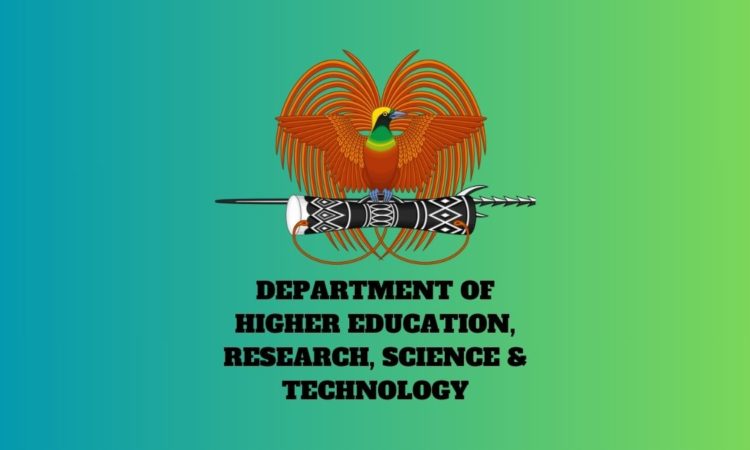Dear Members of the Public,
I, as the Minister responsible for the Higher Education Sector, would like to inform you about the recent developments and initiatives in private sector establishments of Higher Education Institutions, particularly focused on Teachers’ Colleges. While we appreciate and support the contributions of private institutions to the Higher Education Sector, it is crucial to ensure that these institutions meet the necessary standards for institution recognition and program accreditation.
It has come to our attention that several Higher Education Institutions (HEIs) in the private sector do not fulfill the Ten (10) Standards for Institution Registration and the Seven (7) Standards for Program Accreditation. To safeguard the interests of students and their sponsors, we strongly urge the public to verify the recognition status of HEIs with the Department of Higher Education, Research, Science and Technology (DHERST) before enrolling their children. Failure to do so may result in wasted time, and financial committments.
We emphasize that all education providers in Papua New Guinea must adhere to the National Standards and operate within the legal framework outlined by the Higher Education (General Provisions) Act of 2020. The quality of education offered to our children should never be compromised. Therefore, HEIs that attempt to enroll students for the academic year 2024 without proper registration or program accreditation will be subject to penalties as stipulated in Section 53, 70, 70A, 100, 102, 114, 122 and 134D of the Higher Education (General Provisions) Act 2020.
Maintaining the quality of higher education is of utmost importance for Papua New Guinea due to several key reasons:
- Human Capital Development: High-quality higher education institutions play a pivotal role in the development of human capital. They produce graduates who possess the necessary knowledge, skills and competencies required for the social, economic, and technological progress of the nation. These individuals become valuable contributors to the workforce, fostering innovation, productivity and sustainable development.
- Global Competitiveness: In an increasing interconnected global economy, the quality of higher education directly impacts the competitiveness of a nation. Institutions that prioritize quality attracts students, scholars, and researchers from around the world. By cultivating a reputation for excellence, Papua New Guinea can position itself as a reputable and desirable destination for education, research collaborrations, and investment opportunities.
- Socioeconomic Development: A strong higher education system provides the intellectual and technical expertise necessary to drive socioeconomic development. Quality education equips individuals with critical thinking, problem solving, and entreprenuerial skills, enabling them to contribute effectively to the development of industries, entreprenuership, and innovation. This, in turn, leads to increased employment opportunities, improved living standards, and povety reduction.
- Research and Innovation: Quality higher education institutions foster a culture of research and innovation. Through cutting edge research and development, institutions can address national challenges, support technological advancements, and contribute to the expansion of knowledge. Strong research capabilities also enable institutions to attract external funding, partnerships, and collaborations, further enhancing their impact and reputation.
- International Collaborations: Maintaining quality higher education is crucial for fostering international collaboration, and attracts international faculty and students. These collaborations enable the exchange of knowledge, experience, and cultural understanding, enriching the educational environment and promoting global cooperation.
- National Progress and Stability: A nation’s progress and stability hinge on the capabilities of its educated population. Quality higher education equips individuals not only with academic knowledge but also critical thinking and awareness of social and ethical responsibilities. This helps to cultivate active and informed citizens who can contribute to democratic governance, social cohesion, and national development, thereby prompting stability and long term progress.
To ensure the quality of higher education in Papua New Guinea is crucial for the development of human capital, global competitiveness, socioeconomic growth, research and innovation, international collaborations, and national progress and stability. By prioritizing and maintaining quality standards, the national can lay a strong foundation for a prosperous and sustainable future.
As the Minister responsible for all post-secondary education in Papua New Guinea, it is my utmost priority to safeguard the quality of higher education within the nation. To achieve this objective, it is crucial that only Higher Education Institutions (HEIs) with recognized and accredited academic programs are permitted to operate.
I strongly urge the public to exercise caution and conduct thorough due diligence before enrolling their children in any HEIs this includes Universities. It is imperative to verify the legal operational status of these institutions to ensure that they meet the necessary requirements and standards set forth by the Department of Higher Education, Research, Science and Technology (DHERST).
To obtain accurate information and address any inquiries or concerns, I encourage individuals to reach out to the Department of Higher Education, Research, Science and Technology (DHERST). The department is well-equipped to provide guidance and assistance in confirming the recognition and accreditation status of HEIs.
By being proactive in confirming the legitimacy of HEIs, we can collectively uphold the standards of higher education in Papua New Guinea and ensure that our students recieve the quality education they deserve.
I appreciate your attention to this vital matter and encourage everyone to prioritize the well-being and educational future of our students.
Thank you and may God bless Papua New Guinea
Sincerely,
HON. DON POMB POLYE, CMG, BE (Civil), MBA, MIEPNG, MP
MINISTER FOR HIGHER EDUCATION, RESEARCH, SCIENCE AND TECHNOLOGY AND SPORT

